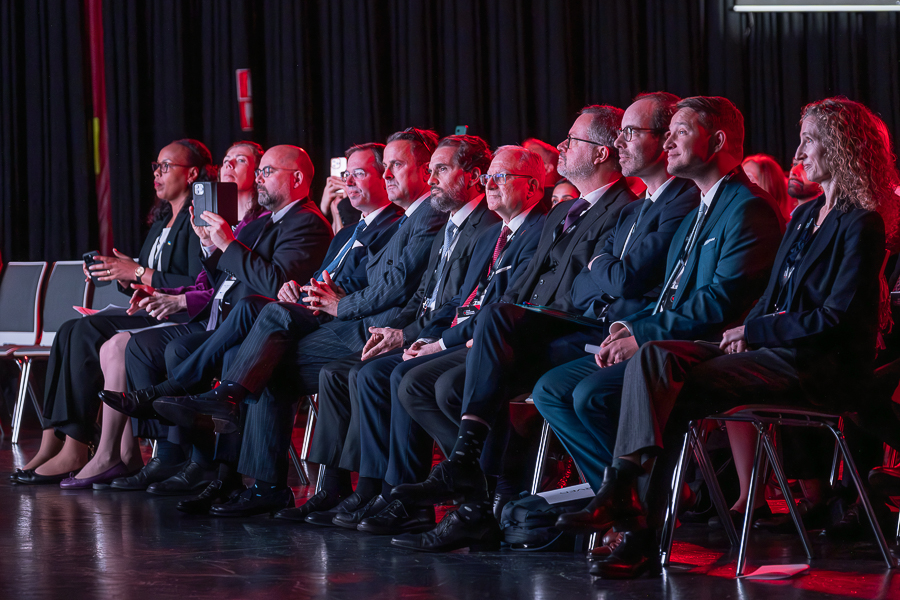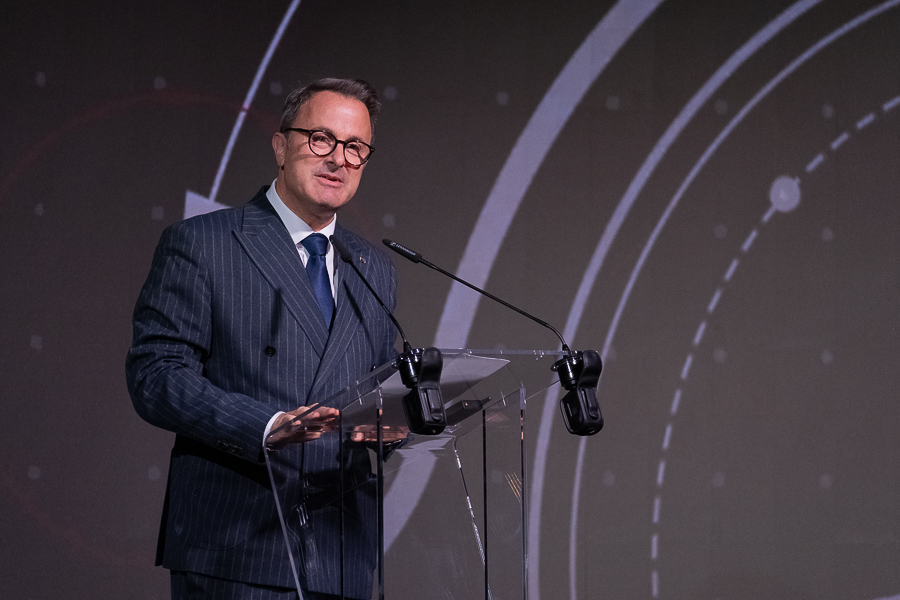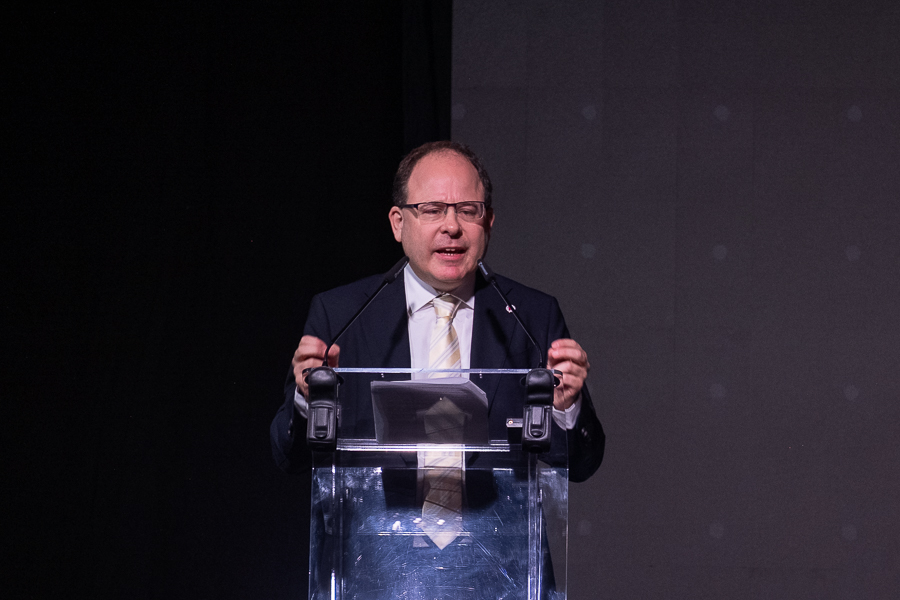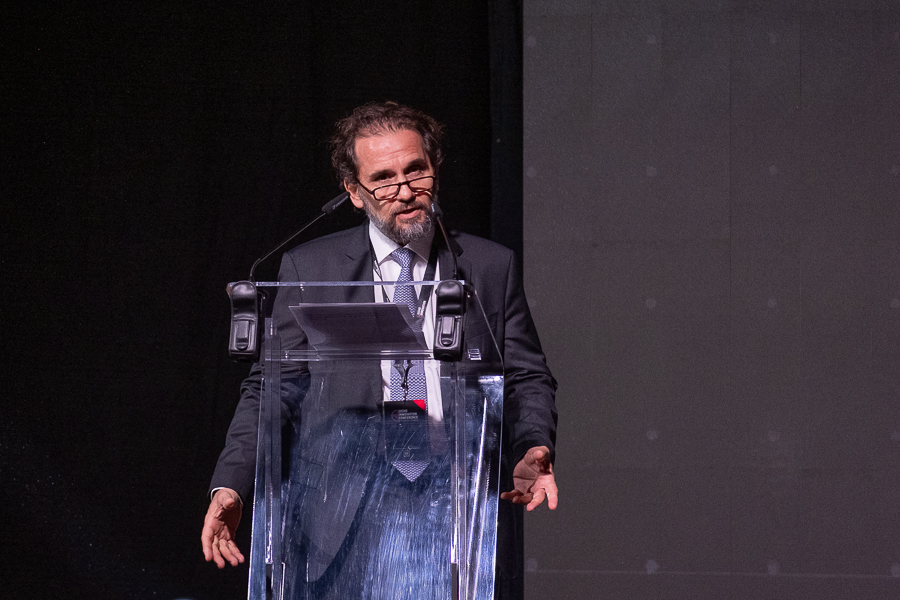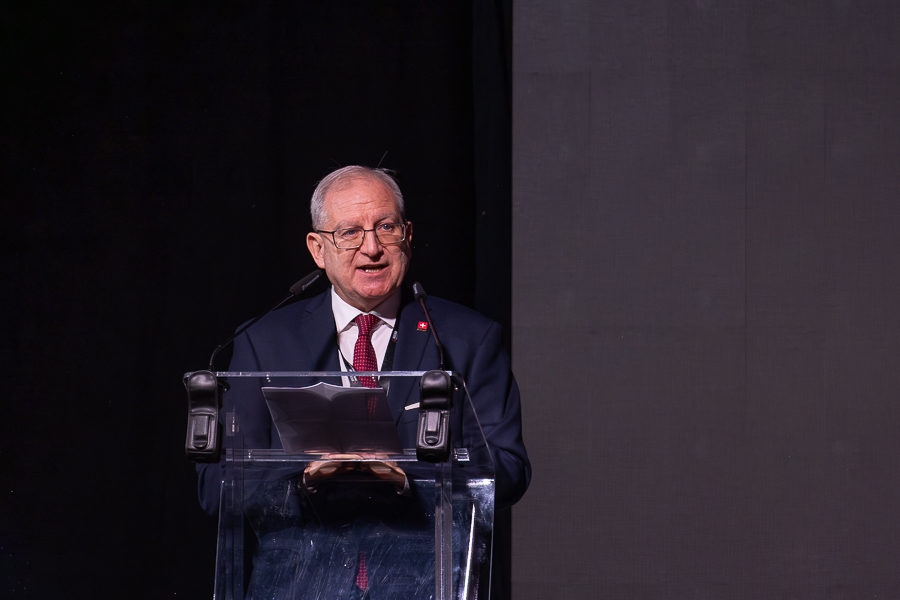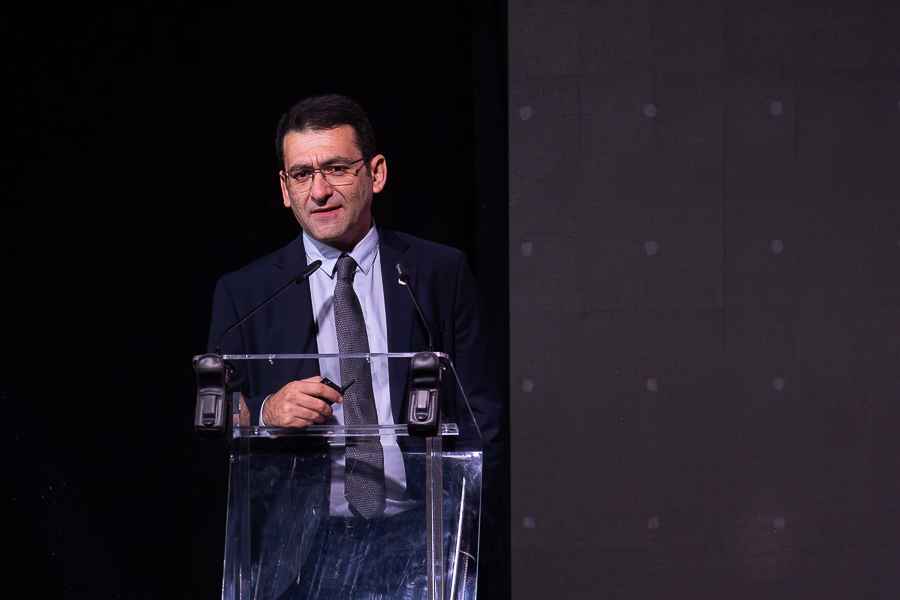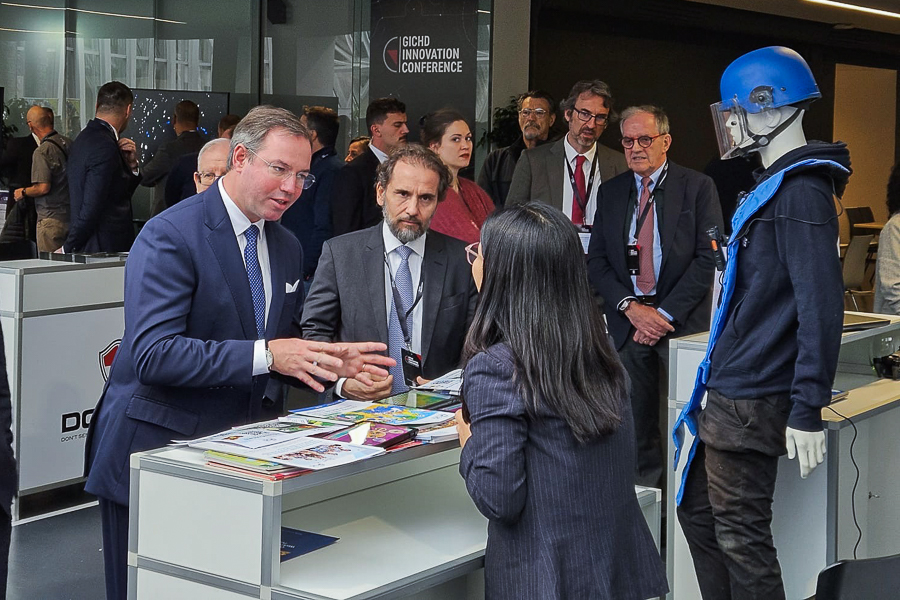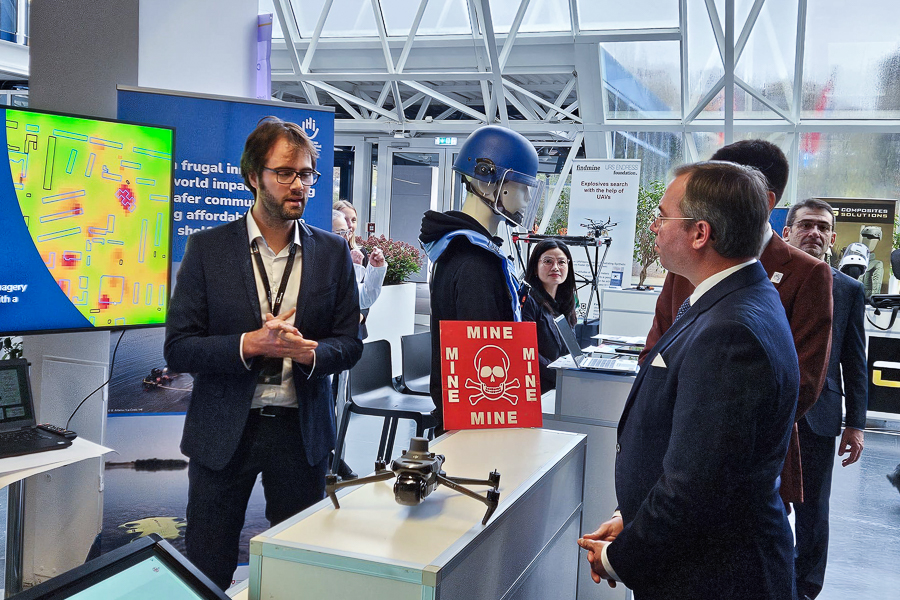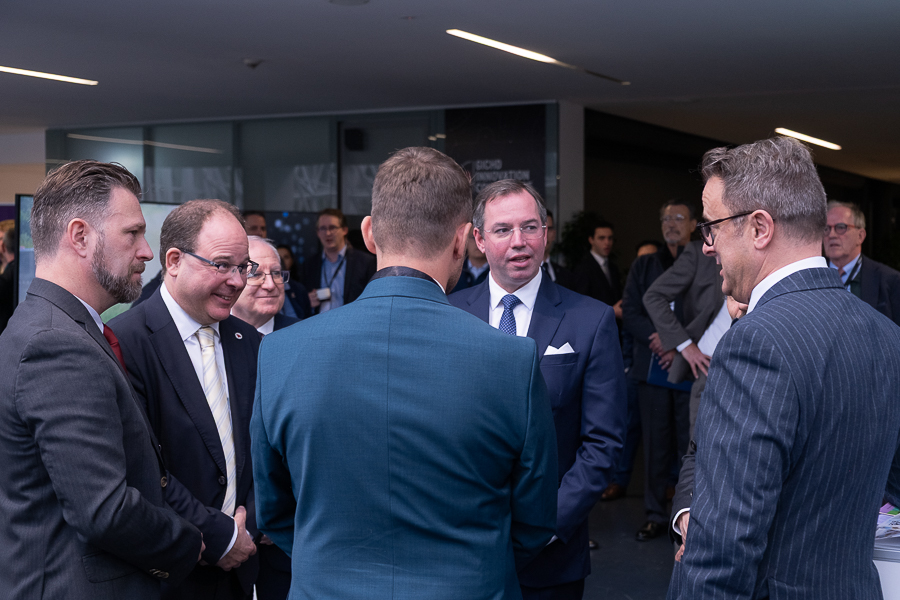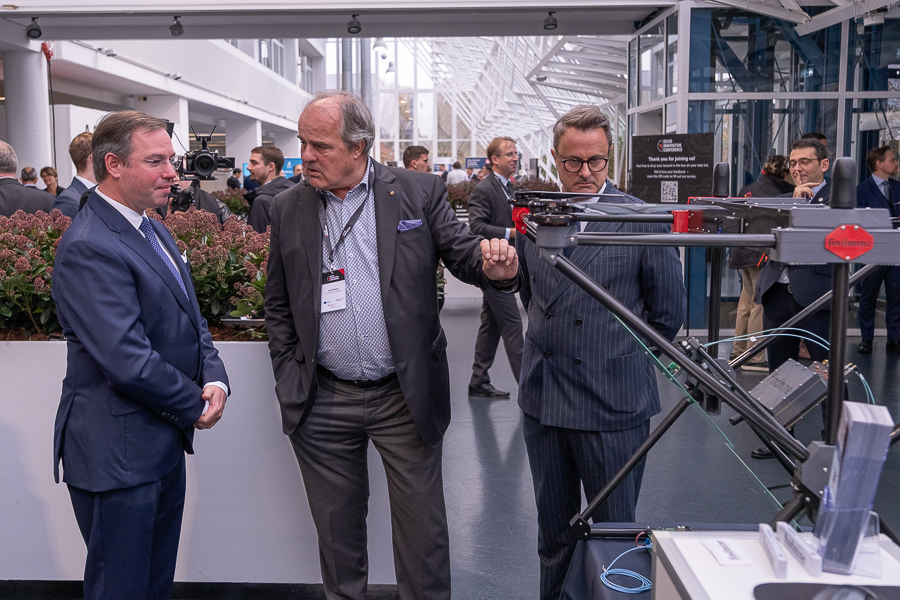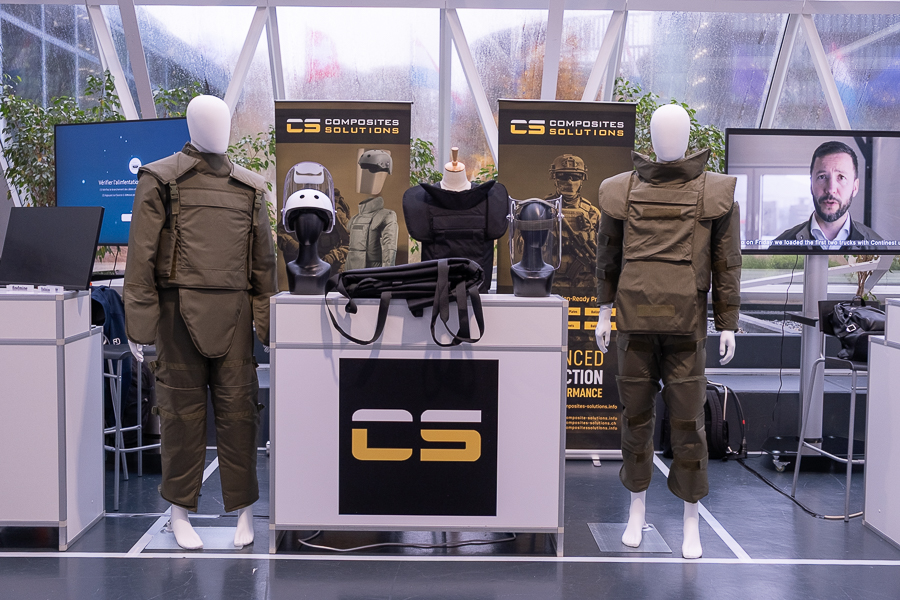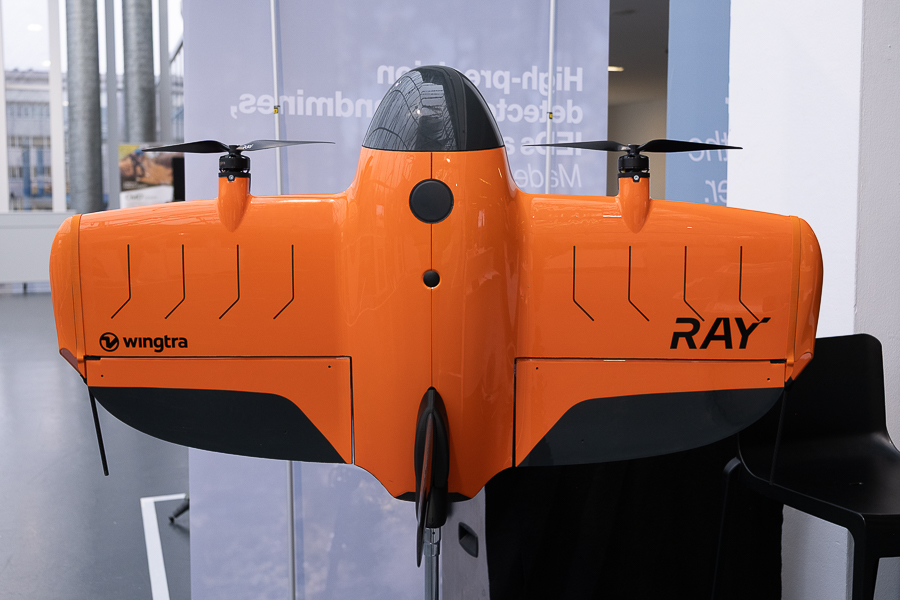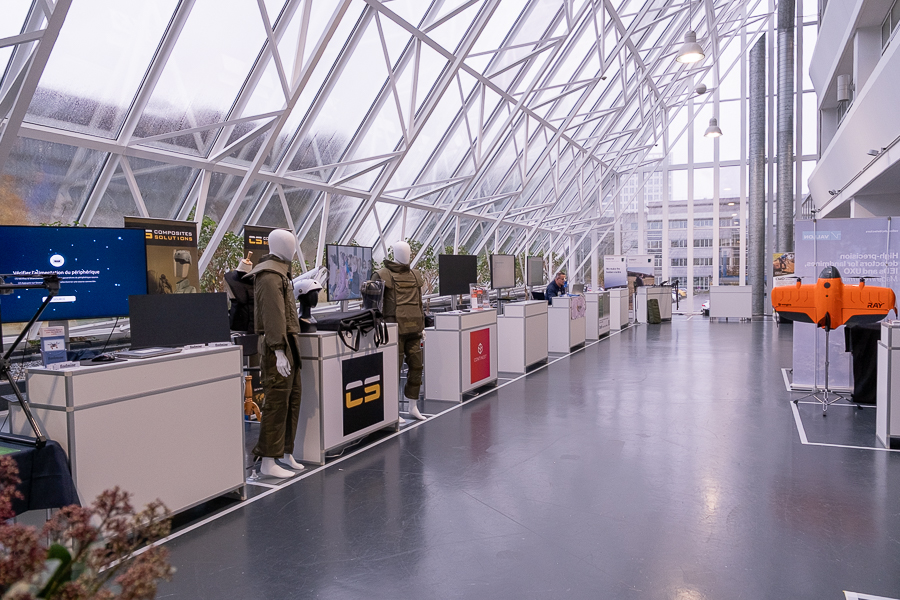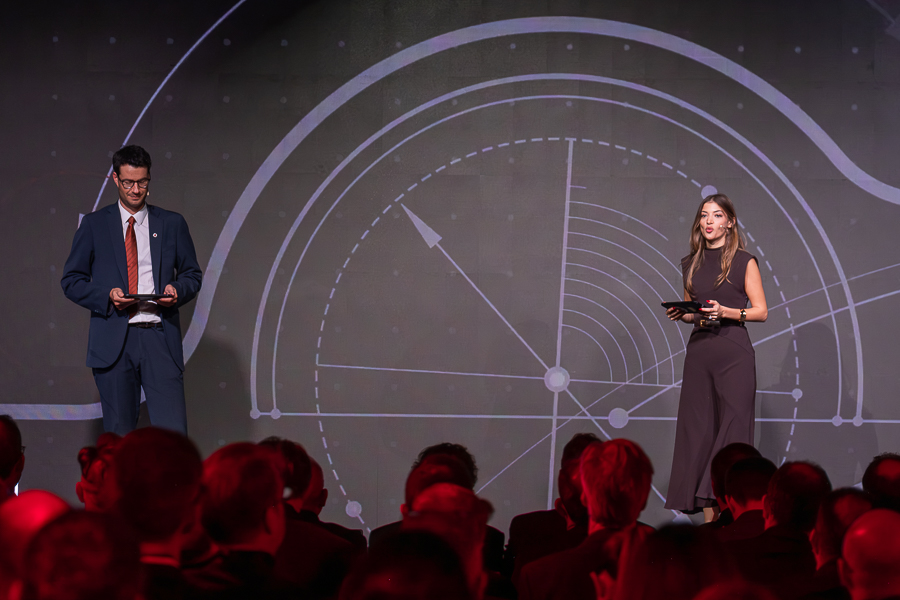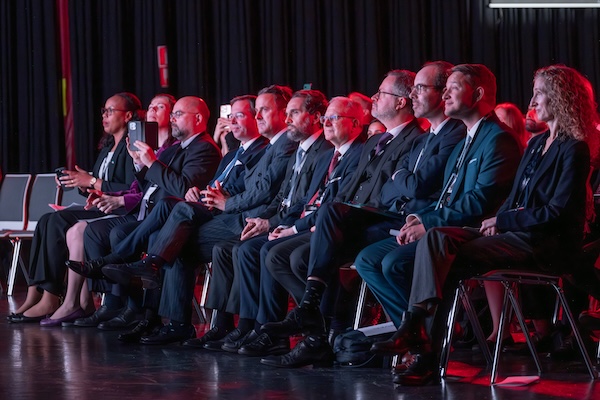 Grand Duke Guillaume and opening session speakers sitting in the plenary room at Luxexpo The Box;
Credit: Ali Sahib, Chronicle.lu
Grand Duke Guillaume and opening session speakers sitting in the plenary room at Luxexpo The Box;
Credit: Ali Sahib, Chronicle.lu
From Tuesday 28 to Thursday 30 October 2025, Luxexpo The Box in Luxembourg-Kirchberg is hosting the GICHD Innovation Conference 2025, organised by the Geneva International Centre for Humanitarian Demining (GICHD) and the government of Luxembourg.
The three-day event provides a platform to foster dialogue on the challenges and opportunities in mine action and ammunition management. It has gathered more than 400 participants representing over 240 organisations from about 70 countries, including a large delegation from Ukraine.
The conference opened on Tuesday morning, in the presence of Grand Duke Guillaume, with speeches in English from Luxembourg’s Deputy Prime Minister and Minister for Development Cooperation and Humanitarian Affairs, Xavier Bettel, GICHD Director Ambassador Tobias Privitelli, Prince Mired bin Ra'ad bin Zeid of Jordan (on his first visit to Luxembourg) and the Swiss Ambassador to Luxembourg, Benno Laggner. The Masters of Ceremonies were Alain Nellen, Advisor, Research and Innovation at GICHD, and Kinda Samra, Project Coordinator, Research and Innovation at GICHD.
In his opening remarks, Minister Bettel highlighted the enduring dangers of mines and unexploded ordnance, noting that they "do not differentiate between soldiers, civilians, adults or children". He recalled visiting minefields in Laos and Vietnam, where the risks persist decades after conflict. He added that even here "in the heart of Western Europe, more than 80 years after the Battle of the Bulge and 110 years after the First World War, explosive remnants of war still pose a threat to our citizens and to our environment." He described these remnants as "a strong reminder that the legacy of conflict endures long after the dust of war has settled" and said they should be "the driving force of our solidarity with communities around the world that face these challenges and dangers daily." Minister Bettel stressed that mine action is essential to enable reconstruction, safe resettlement, agricultural recovery and the transition to peace.
He noted that Luxembourg has increased its commitment to mine action every year since Russia's invasion of Ukraine. Since 2023, the Grand Duchy has spent more than €80 million on mine action programmes. The country is also seeking "new and innovative ways" to bring added value to the demining sector, through partners such as Humanity & Inclusion and the HALO Trust. "We believe in a world where innovation leads to a more efficient humanitarian system," the minister said, adding that Luxembourg will continue to invest in innovation.
Minister Bettel announced a new project to develop a 3G database of explosive ordnance to be stored in Luxembourg. Once ready and tested, the system will be shared with non-profit mine action organisations to help train artificial intelligence (AI) models and create new tools for safer and more effective clearance operations. He concluded that demining is "not only an obligation for today" but also a priority for future generations.
Ambassador Tobias Privitelli described the event as the largest global conference dedicated to innovation in mine action. He emphasised that innovation in this sector is "not mainly an intellectual problem; it's a humanitarian problem", stressing the need for innovative solutions that are scalable, reliable, affordable and accessible to all countries affected by explosive risks. He added that regulations can be adapted to new technologies, although the sector is "not as efficient as it should be". The GICHD Director noted: that "innovation means efficiency" and "efficiency means saving more lives". He lamented the rising number of landmine victims, including many children, and stressed the need for better risk education and victim assistance.
"For the civilians on the ground, the promise of innovation [...] is not an abstract idea; it is a hope for a life without fear," he stated. "Your creativity, your science, your ideas have a humanitarian meaning," he added, addressing participants. "We need all these perspectives to open the door to new thinking and bold collaboration." He thanked all attendees before concluding: "I think we all share the same goal: to make the life of millions of people affected by [landmines] safer. Let's turn the promise of innovation into protection, recovery and resilience".
Prince Mired bin Ra'ad bin Zeid noted that this was his first time attending such an event in over 20 years of working in the field of landmines. He said his focus has always been on ensuring that Jordan fulfils its commitments under the Anti-Personnel Mine Ban Convention, while also striving to ensure the convention remains strong and robust, attracting more member states.
He argued that the convention needs "sharper teeth", calling on state parties to universalise the convention and cautioning against complacency. He warned that many states have been falling behind on their obligations and called for renewed advocacy efforts to prevent backsliding. He concluded by commending participants on their continued efforts: "Your amazing expertise has proved that clearance has become more and more global and safer, and the transfer of knowledge and exchange between you, which is formidable, has allowed the industry to grow and flourish." He also praised the GICHD as a "stalwart engine and driver of innovation" and thanked the Luxembourg government for hosting the conference. "Let us keep the convention healthy and strong with teeth and continue to safeguard the lives of people around the world," he stated.
Ambassador Benno Laggner reaffirmed Switzerland's longstanding commitment to mine action (for the past 30 years), highlighting three current priorities: promoting the normative framework (including effective implementation and universalisation of agreements); supporting humanitarian mine action on the ground (with a particular focus on Ukraine since Russia's full-scale invasion); fostering innovation, understood in a broad sense.
He cited recent technological advances such as new demining machines, prioritisation systems using artificial intelligence (AI) and the use of sensors on drones to allow easier detection of explosive remnants of war and landmines. He noted that innovation also means "applying technologies, techniques and mechanisms which have been successfully used in other fields to mine action", as well as coming up with new approaches without technological assistance. "The efficiency, accuracy and safety of mining operations depend on staying at the cutting edge of scientific advancement and technological development," the ambassador said, before thanking the event organisers.
Armen Harutyunyan, Head of Research, Innovation, Standards and Operations at GICHD, subsequently "set the stage", presenting an overview of the three-day programme, which includes plenary sessions, exhibitions and the presentation of the very first GICHD Innovation Award. He identified persistent challenges such as inadequate collaboration and coordination, cost-effectiveness and limited funding, "Silver Bullet" / universal solutions, resistance to change and legal and regulatory framework barriers, while noting progress through greater awareness and cooperation fostered by events such as this conference.
Following the opening session, Grand Duke Guillaume and the speakers toured the exhibition area where they spoke with exhibitors and viewed the innovations on display.
The GICHD Innovation Conference 2025 continues at Luxexpo The Box until Thursday 30 October. For more information, visit https://www.gichd.org/innovation-conference-2025/

